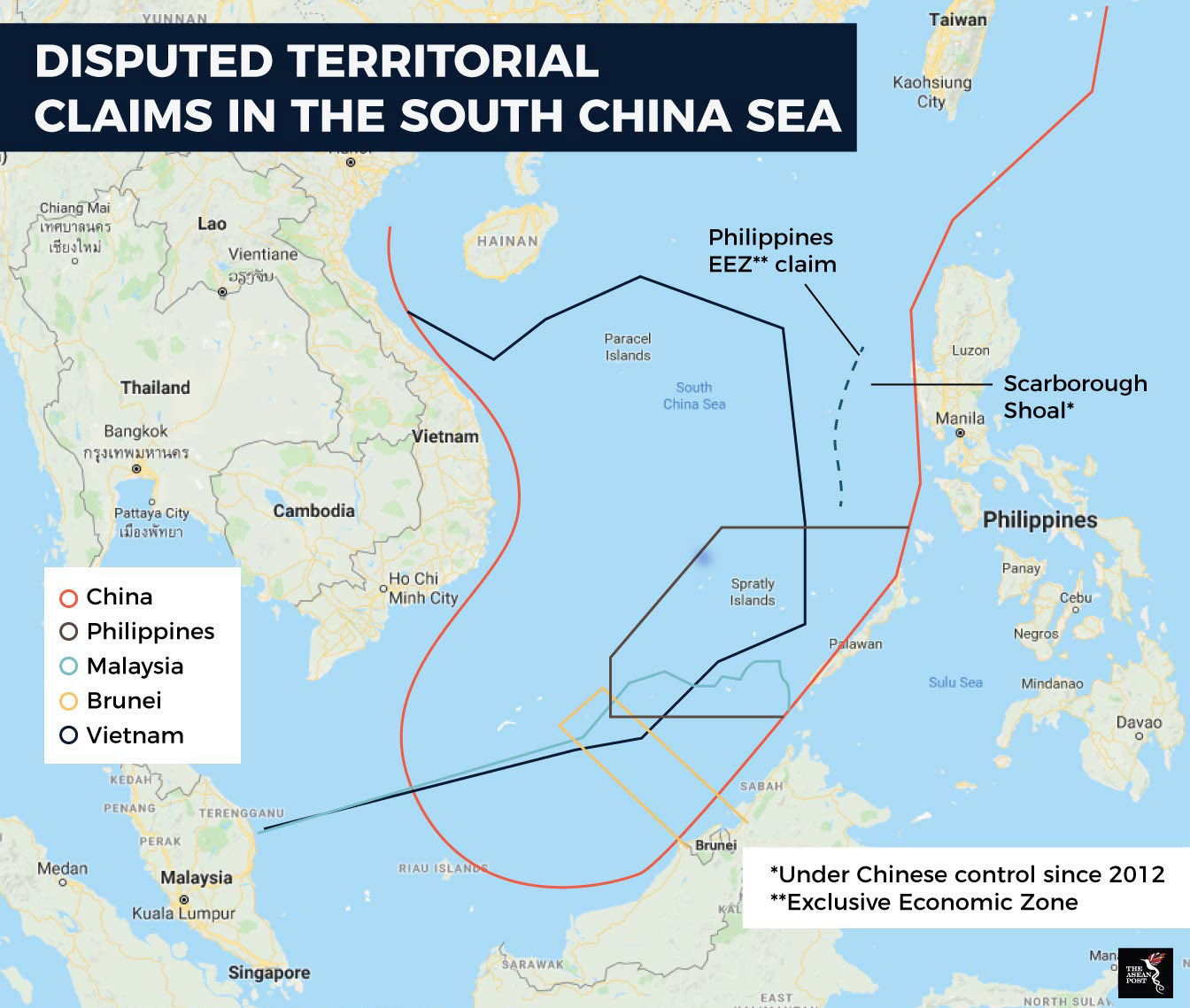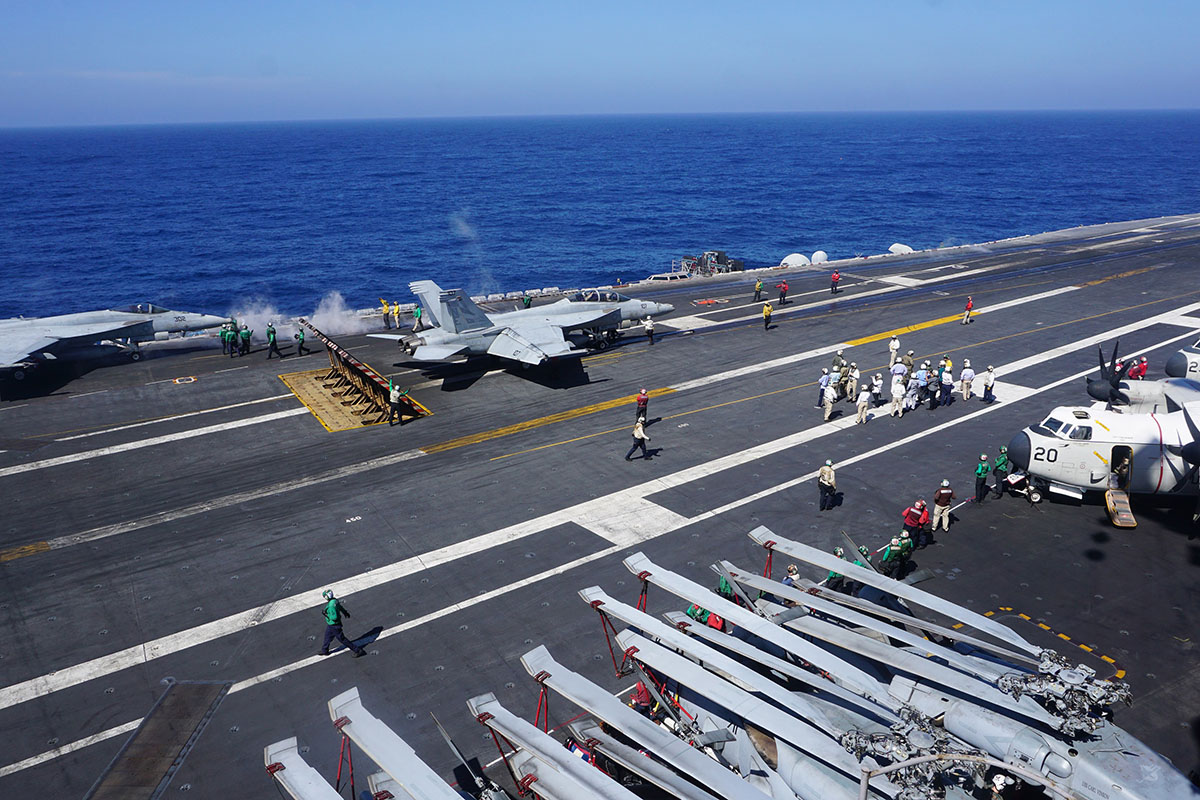On Thursday, the Philippines announced that it was in talks with a Chinese state firm for joint exploration of the South China Sea. The aim of this joint exploration is to look for and extract energy resources such as oil and gas in the area. The proposed deal was described by President Rodrigo Duterte as a ‘co-ownership’ of the disputed areas.
"Now their (Beijing's) offer is joint exploration, which is like co-ownership. It's like the two of us would be the owners. I think that's better than fighting," he said during a visit to Marawi.
Both countries have been long entangled in a row over their competing claims to the South China Sea whereby China claims nearly the entire sea. Brunei, Malaysia, Taiwan and Vietnam also claim parts of the sea. However, Duterte’s recent softening of his predecessor’s policy of opposing China’s claims have caused alarm among neighbouring Southeast Asian countries.

Source: AFP
More recently on Friday, the archipelagic nation already identified two areas in the South China Sea where the joint exploration may commence. One of these areas lies in disputed territories.
According to presidential spokesperson Harry Roque, these two areas include the areas of Service Contracts (SC) 57 and Service Contract 72.
"We are still in the process of negotiating with China. There has been no decision yet," Roque said in a press briefing.
SC 57 is an undisputed area within the Philippines' Exclusive Economic Zone (EEZ), and lies beyond China's nine-dash line claims in the South China Sea. This means that the country can agree to jointly explore it with China. According to Philippine’s Department of Energy (DOE), SC 57 is a joint exploration between state-run PNOC Exploration Corporation, Mitra Energy Ltd., and China's state-owned China National Offshore Oil Company (CNOOC). The area of the exploration is located offshore of Northwest Palawan and lies near the country’s main oil and gas fields, including Malampaya, Nido, Cadlao and Matinloc.
SC 72, on the other hand, lies within a disputed territory that is referred to in a 2010 agreement between the Philippines government and United Kingdom-based oil and gas company, Forum Energy Plc. (FEP). In the agreement, FEP was awarded exploration rights to an area in the Reed Bank. Interestingly, the majority of FEP's shares are owned by a Filipino business tycoon.
In 2016, the Philippines won a case at the Permanent Court of Arbitration in The Hague, which invalidated China’s claim to sovereignty over most of the South China Sea, and also made clear that the Reed Bank was inside the Philippines’ exclusive economic zone. However, China does not recognise the ruling. Due to this situation, Roque stated that an agreement has to be reached before both countries proceed with the joint exploration.
What will the joint exploration mean for Philippines?
The cooperation between Duterte and China is a 180-degree shift from Benigno Aquino’s viewpoint in which he accused China of invading and occupying the Philippine’s claimed exclusive economic zone.
Aquino won an international arbitration tribunal ruling in 2016 invalidating China’s claims, but Duterte set aside the ruling while courting investments and trade from China, the world's second-largest economy.
In order to further exploit natural resources in the South China Sea, Filipino firms would require aid in terms of capital. This is where China plays a pivotal role in the joint exploration. Apart from that, an incident in 2011 whereby a Filipino seismic survey vessel on the Reed Bank was met by Chinese war boats is also another reason as to why China needs to be part of the joint exploration. With China on the exploration, the Philippines’ will not have to worry about security issues.
To ensure that there will be no infringement on sovereignty rights, the two countries have agreed to set up a panel to work out how they can jointly explore the contested waters in an amicable way. Despite public criticisms, Duterte must balance between maintaining a healthy relationship with China and keeping his government’s critics at home placated.
